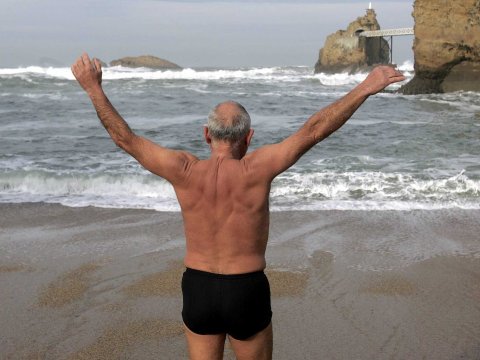
What is the best way to learn an important life lesson?
January 26, 2014 7:00 amThis week, we’re taking a break from the nitty-gritty of investment themed articles, and instead are going to share something a bit more philosophical.
QUESTION: What is the best way to learn an important life lesson?…
ANSWER: to either go through the situation yourself (better known as the school of hard knocks), or… if you’re lucky, to ask someone for advice who has already “been there, done that.”
Those of us with family members who have lived well into their 80s, 90s, and perhaps beyond, know what a treasure it can be to have a conversation with somebody who has so much life experience to share… they have an incredible knack for boiling it all down to what really matters. And that’s the theme we want to explore today.
In his book, “30 Lessons for Living: Tried and True Advice from the Wisest Americans”, author Karl Pillemer interviews more than 1,000 elderly Americans (mostly in their 80s and 90s) about important life lessons. Their advice on money was really great and is worth sharing (in part because it is the exact opposite of how many young people live). Below is an abbreviated summary of a BusinessInsider.com review of Karl Pillemer’s study… We hope you enjoy these “lessons” as much as we did.
1. Young people obsess about making a lot of money. Older people wonder what they were thinking.
No one — not a single person out of a thousand — said that to be happy you should try to work as hard as you can to make money to buy the things you want.
No one — not a single person — said it’s important to be at least as wealthy as the people around you, and if you have more than they do it’s real success.
No one — not a single person — said you should choose your work based on your desired future earning power.
2. Money is often at war with time. Balance them appropriately.
The view from the end of the life span is straightforward: time well and enjoyably spent trumps money anytime. They know what it means to make a living, and they are not suggesting that we all become starving artists. But they also know firsthand that most people who decide on a profession because of the material rewards at some point look back and gasp, “What have I done.” In their view, we all need a salary to live on. But the experts concur that it’s vastly preferable to take home less in your paycheck and enjoy what you are doing rather than live for the weekends and your three weeks (if you get that much) vacation a year. If doing what you love requires living with less, for the experts, that’s a no-brainer …
3. Not traveling enough is a key source of regret
I learned that whether [the experts] had visited dozens of counties or stayed put in one place, the experts had one thing in common: they wished they had traveled more.
I came away from my interviews with the realization of the profound meaning travel has at the end of life. To sum up what I learned in a sentence: when your traveling days are over, you will wish you had taken one more trip. Often, after a long narrative about trips taken, I heard an elder say wistfully, “But I always wish I’d visited …”
4. Be frugal, but live a little.
[Expert:] “Don’t worry so much. There is not enough time in our lives to trade off the gold of our existence for the dust of what-ifs or what-if-nots. I had my first job before I was twenty and saved everything I could from my paychecks. I closed my ears to good advice from a dear woman who told me that I should enjoy my days and not become so absorbed with thrift. I did not understand what she said. Although I used money to attend plays and concerts, I did so knowing that each ticket for a performance meant less money in my savings account. As I grew older, people I knew and loved died, and I began to see how very precious each moment of each day is.”
5. Long-term thinking is a great way to live as an investor. It’s a terrible way to live as a person.
[Expert:} “It seems to take a lifetime to learn how to live in the moment but it shouldn’t. I certainly feel that in my own life I have been too future oriented. It’s a natural inclination — of course you think about the future, and I’m not suggesting that that’s bad. But boy is there a lot to be gained from just being able to be in the moment and able to appreciate what’s going on around you right now, this very second. I’ve more recently gotten better at this and appreciated it. It brings peace. It helps you find your place. It’s calming in a world that is not very peaceful. But I wish I could have learned this in my thirties instead of my sixties — it would have given me decades more to enjoy life in this world. That would be my lesson for younger people.”
Tags: Advice, Business Insider, Karl Pillemer, Life Lessons, Money, Retirement, Travel, WorkCategorized in: Blog
This post was written by Conscient Capital





